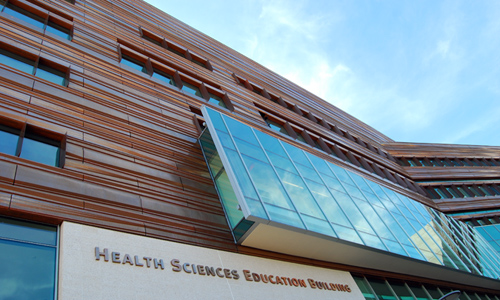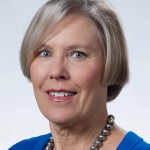Welcome to the Class of 2019! I am thrilled to have this opportunity to be a contributor the COM – P student newspaper, The Differential. When I was asked to write this article, it was suggested that I review the changes in medicine during my career. Since I am on the brink of retiring after 30+ years of being a family physician and medical educator, I have no idea where to begin. Change, innovation, and the doctor-patient relationship seem to be a few of the constants in our field. The body of knowledge that I learned during medical school has been mostly replaced or expanded over the last few decades. When you add the technological advances that are now used in medicine, the change is more profound. I think of my first practice in a rural site where the availability of educational and consultative resources was seriously limited. Getting formal continuing medical education meant leaving my rural community without a doctor, something I could rarely do. Having the ability to transmit digital images to a colleague, taking courses, or obtaining a recent article online has transformed rural practice, allowing rural doctors to remain connected and informed. Simulation centers have offered all healthcare providers a way to maintain procedural skills. New knowledge has created new career paths that previously never existed.
So what is it that tweaks a student’s interest in a career? Some of you come with exposure to a field of interest and have already set career goals. Although many will keep those interests throughout medical school, others will find another specialty intrigues them more. The majority of you are “undifferentiated,” still seeking which specialty will complement your personal strengths and innate abilities. It is not uncommon for a student to get advice from a well-meaning faculty or peer that they are too smart for their chosen career—or that only surgery can fix a patient—or that only primary care allows you to really know a patient. Although most comments are meant to compliment and recruit, I want to challenge you to be true to your own personal and career goals. The COM – P, through its Capstone and PAL blocks and its career advisement program, offers students exposure to different careers starting in your first year of school. My experience is that students who are intentional in their search for the right career fit by using the resources offered enter their 4th year with confidence when applying to a residency. Our ultimate goal is for each of you is to find your niche in medicine, a place where you can use your unique talents and curiosity to better the lives of your patients, your profession, and your own life.
I promise you that whatever you career you choose, it will transform you in ways never expected. Be prepared for change and embrace it! I wish you the best as you start this wonderful journey.
Cheryl Pagel spent 27 years teaching residents at the Banner Good Samaritan Family Medicine Residency as the Assistant Program Director, before coming to the University of Arizona College of Medicine – Phoenix campus. During this same time she worked with the college medical students as a site director and small group facilitator for Family and Community Medicine third-year clerkship. She has been a member of the Doctoring faculty for 4 years. In 2010, Dr. Pagel transitioned to the college's Student Affairs team where she has enjoyed working with students as her primary focus, first as the Associate Dean and most recently as a student career counselor.


